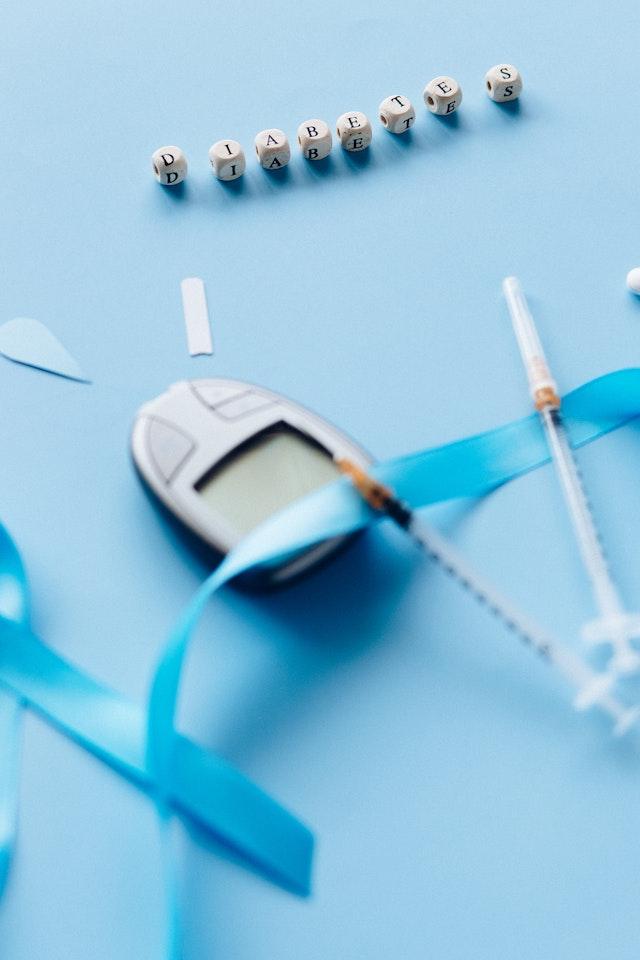Posts Tagged ‘diabetes mellitus’

Benefits for Vitamin B12 for Diabetics
Is Vitamin B12 Good for Diabetics?
There is an essential vitamin to your body yet it cannot produce it. This essential vitamin is known as cobalamin or Vitamin B12. Apart from being added to certain foods and being available as an oral supplement or injection, you can find Vitamin B12 naturally in animal products.
There was a vitamin B12 deficiency of about 29.66% in diabetic patients as per the laboratory tests that were done in a study in 2016. There were also lower values of B12 statistically in patients on metformin.
Vitamin B12 deficiency was significantly higher in those who smoked than in those who did not smoke. Additionally, vitamin B12 was lower in patients using multivitamins compared to non-users.
Your body needs vitamin B12 for various purposes. This vitamin is essential for the formation of red blood cells and DNA synthesis apart from being essential in supporting the normal function of your nerve cells. The recommended daily intake (RDI) is 2.4 mcg, for most adults. However, for breastfeeding or expectant mothers, it is higher.

What Are the Symptoms of B12 Deficiency?
There is a wide range of symptoms that may be related to folate or vitamin B12 deficiency. If the condition goes untreated it can worsen despite it developing gradually. The symptoms include: –
• Fatigue or extreme tiredness
• Lethargy (lack of energy)
• Breathlessness
• Feeling faint
• Headaches
• Pale skin
• Palpitations (noticeable heartbeats)
Benefits Of Vitamin B12
Improving your memory, helping prevent heart disease, and boosting your energy is among the multiple impressive ways that vitamin B12 may benefit your body.
Here are 9 benefits of vitamin B12 that are all based on science:
1. Helps with red blood cells formation and anemia prevention
Red blood cells are essential to your body and vitamin B12 plays a crucial role in their production. A reduction in red blood cell formation is caused by low vitamin B12 since the low levels of vitamin B12 inhibit the proper development of red blood cells.
The deficiency of vitamin B12 in your body will lead to red blood cells becoming larger and typically oval. Small and round is an indication of healthy red blood cells.
The rate at which red blood cells will be moving into your bloodstream will not be appropriate because of their larger and irregular shape and this will cause megaloblastic anemia.
Moreover, you may experience symptoms such as weakness and fatigue when you are anemic and this is due to the lack of enough red blood cells in your body to transport oxygen to your vital organs.
2. May Prevent Major Birth Defects
A healthy pregnancy is much dependent on adequate vitamin B 12 in your body. For the proper development of a fetus’s brain and nervous system, sufficient B12 levels are required from the mother, especially during pregnancy.
You may have an increased risk of birth defects such as neural tube defects due to vitamin B12 deficiency in the beginning stages of pregnancy. Moreover, premature birth or miscarriage may be contributed by maternal vitamin B12 deficiency.
Compared to those with adequate levels, women are three times more likely to give birth to a child with birth defects should they have vitamin B12 of lower than 250 mg/dl as per results from one study.
Further, compared to women with levels above 400 mg/dl, women with a vitamin B12 deficiency and levels below 150 mg/dl the risk of giving birth to a child with defects was five times higher.
3. May Support Bone Health and Prevent Osteoporosis
Your bone health may be supported by adequate levels of vitamin b12 in your body. People with a vitamin B12 deficiency also had lower than normal bone mineral density as per the result of one study in more than 2,500 adults.
You are at an increased risk of having osteoporosis in case you have bones with decreased mineral density since your bones are likely to become fragile and delicate over time. Especially in women, there is a link between osteoporosis and low vitamin B12, and poor bone health as shown in other studies.
4. May Reduce Your Risk of Macular Degeneration
An eye disease that mainly affects your central vision is known as macular degeneration. To help prevent the risk of age-related macular degeneration maintaining adequate levels of vitamin B12 is essential.
Additionally, there is a type of amino acid that is found in your bloodstream known as homocysteine and according to studies supplementing with vitamin B12 may help lower it. An increased risk of age-related macular degeneration has been associated with elevated homocysteine levels.
Supplementing with vitamin B12, along with folic acid and vitamin B6, may reduce this risk as per a study that involved 5,000 women aged 40 and above.
To fully understand vitamin B12’s role in promoting vision health and preventing macular degeneration further studies are ultimately needed.
5. May Improve Mood and Symptoms of Depression
Your mood may be improved by using vitamin B12. It is not yet fully understood the effect of vitamin B12 on mood. However, there is a chemical responsible for regulating mood and it is known as serotonin and vitamin B12 plays an essential role in its synthesizing and metabolizing.
Therefore, you are likely to have a depressed mood because of decreased serotonin production that is caused by vitamin B12 deficiency in your body.
Symptoms of depression in people deficient in this vitamin can be improved by the use of vitamin B12 supplements as supported by studies.
Compared to those treated with antidepressants alone in one study with people with depression and low vitamin B12 levels, it was found that those who received both antidepressants and vitamin B12 were more likely to show improved depressive symptoms.
There were two times more the risk of severe depression associated with vitamin B12 deficiency as per discovery from another study. Furthermore, better treatment outcomes and an increased probability of recovery from the major depressive disorder have been linked with high vitamin B12.
Research does not currently suggest that vitamin B12 supplements have the same effect in those with normal B 12 levels despite these supplements helping to improve mood and depression in people with deficiency.
6. May Benefit Your Brain by Preventing the Loss of Neurons
Memory loss especially in adults has been associated with vitamin B12 deficiency. The loss of neurons in the brain is known as brain atrophy and often this is associated with dementia or memory loss using vitamin B12 can play a major role in preventing it.
A combination of vitamin B12 and omega-3 fatty acid supplements slowed mental decline as per the results of one study in people with early-stage dementia. Poor memory performance can be contributed even with vitamin B12 levels on the low side or normal in findings from another study.
Therefore, even in the absence of a clinically diagnosed deficiency, supplementing with this vitamin may improve memory.
To make sound conclusions on the effect of vitamin B12 supplements on memory and cognitive function, more research is needed.
7. May Give You an Energy Boost
The go-to product for a surge of energy has long been touted to be vitamin B12 supplements. Despite them not necessarily providing energy by themselves, the production of energy by your body is always supported by vitamins.
Scientific evidence suggesting that vitamin B12 supplements can boost energy in those with sufficient levels of this vitamin is currently not there. On the other hand, taking a supplement or increasing your intake will likely improve your energy level especially if you are significantly deficient in vitamin B12.
Fatigue or lack of energy is one of the most common early signs of vitamin B12 deficiency.
8. May Improve Heart Health by Decreasing Homocysteine
An increased risk of heart disease has been linked to high blood levels of the common amino acid homocysteine. Your homocysteine levels are likely to become elevated if you are significantly deficient in vitamin B12. Your risk of heart disease may be reduced by a decrease in homocysteine levels with the help of vitamin B12 as shown by the studies.
To understand the relationship between vitamin B12 and heart health, further research is needed. This is because scientific evidence to confirm vitamin B12 supplements are effective in this regard is currently not there.
9. Supports Healthy Hair, Skin and Nails
To promote healthy hair, skin, and nails, adequate levels of vitamin B12 are needed given this vitamin’s role in cell production.
It is true that various dermatologic symptoms include hyperpigmentation, nail discoloration, hair changes, vitiligo (another term for the loss of skin color in patches), and angular stomatitis (inflamed and cracked mouth corners) can be caused by low vitamin B12 levels in your body.
Dermatologic symptoms in people with vitamin B12 deficiency can be improved by supplementing with vitamin B12. However, taking a vitamin B12 supplement is unlikely to improve your skin, nail strength, or hair health if you are well-nourished and not deficient in this vitamin.
Who Is at Risk of Vitamin B12 Deficiency?
An estimated 20% of people in the United States and the United Kingdom aged 60 and above have normal or deficient borderline levels while the number of people with vitamin B12 deficiency is estimated to be around 6%.
The occurrence of vitamin B12 deficiency can happen in one of two ways. It can be either your body is unable to fully absorb vitamin B12 from the food you eat or the food and diet you take do not have adequate amounts of the vitamin.
Those at risk of vitamin B12 deficiency are as follows:
• Older adults
• If you have gastrointestinal conditions like Crohn’s disease or celiac disease.
• If you have ever had surgeries especially gastrointestinal like bariatric surgery or bowel resection surgery
• If you are on a strict vegan diet
• If you are using blood sugar control such as metformin
• If you are using proton pump inhibitors for chronic heartburn
A reduction in the absorption of vitamin B12 can be caused if there is reduced secretion of hydrochloric acid in the stomach of many older adults.
Your doctor may recommend intramuscular injections of B12 to increase your levels if your body has difficulty absorbing it.
Despite some plant-based kinds of milk or grains having been fortified with Vitamin B12, it can only be naturally found in animal products in abundance since it is always limited in vegan diets. Because of this, people with a strict vegan diet are at risk of vitamin B12 deficiency.
Preventing vitamin B12 should be easy if you eat a healthy, varied diet. However, it is advisable that you speak to your doctor especially if you think you might be at risk.
Oral or intramuscular injections are the most common ways of preventing or resolving vitamin B12 deficiency.
Metformin And Vitamin B12
The relation between prolonged usage of metformin and vitamin B12 deficiency has been shown in the evidence from observational along with interventional studies.
The calcium-dependent absorption of B12 may be affected. The dose and the duration of metformin usage have been stated to be inversely related to the serum vitamin B12 values.
Considerable problem of peripheral neuropathy in non-insulin-dependent diabetes mellitus (NIDDM) patients may increase due to the extended use of metformin, accompanied by vitamin B12 deficiency.
Vitamin B12 deficiency affects about 30% of diabetics who are 40 years of age and above and state about having a diminished sensory perception in their feet by being an impending health abnormality, neuropathy.
The Bottom Line
Through diet or supplements are the only means that you must obtain vitamin B12, a water-soluble vitamin. Preventing major birth defects, bone health, improving mood, and maintaining healthy skin and hair are some of the many bodily functions and benefits of vitamin B12 to your health.
It is crucial that you get enough vitamin B12 through your diet. However, supplements are a simple way to increase your B12 intake if you struggle to obtain enough or have a condition that affects its absorption in your body.
FAQs
- Do diabetics need B12?
For optimal hemopoietic, neuro-cognitive and cardiovascular function, vitamin B12, which is an essential micronutrient is required. Among patients with type and type 2 diabetes mellitus, biochemical and clinical vitamin B12 deficiency has been demonstrated to be highly prevalent.
- Does B12 Lower Blood Sugar?
To metabolize proteins, fat, and carbohydrates into glucose, the help of vitamin b12 is essential. Your body’s main source of energy is glucose and because of this, low glucose levels in your body can be caused by vitamin B12 deficiency. Fatigue is one of the main symptoms of hypoglycemia and to treat severe fatigue, vitamin B12 supplements are widely used.
- Does Vitamin B12 Give You Energy?
Vitamin B12 might reduce your chance of fatigue thanks to its role in energy metabolism. To convert protein, fat, and carbs into energy, your body needs the help of vitamin B12 for its metabolization.
- How Much B12 Should a Type 2 Diabetic Take?
Currently, in the US, 2.4 µg of synthetic vitamin B12 daily in either in fortified food or supplement form is the believed recommendation for adults with type 2 diabetes that are 50 years and above.
- Does B12 increase diabetes?
Homocysteine levels can be reduced with B12 supplementation. With vitamin B12 therapy as there is the correction of hyperhomocysteinemia, improvement in glycaemic control can be shown in type 2 diabetes as a metabolic syndrome.
- Does B12 Help with Insulin Resistance?
In patients with metabolic syndrome, the was improved insulin resistance and endothelial dysfunction, along with decreasing homocysteine levels after folate and vitamin B12 treatment as per the results of a study. This, therefore, indicates that on cardiovascular risk factors there are multiple beneficial effects of using folic acid.
- Is Vitamin B12 Good for Diabetic Neuropathy?
When it comes to the treatment of diabetic neuropathy, it is still unclear whether taking vitamin B12 can help. A lessening pain and other abnormal sensations have been shown in some small studies. However, taking B12 supplements for diabetic neuropathy has not been shown to help people who do not have a vitamin B12 deficiency.
- Are B12 shots Good for Diabetics?
In reducing the risk of low B12 and HHcy-related symptoms, treatment with B12 injections or supplements would help. The pain and suffering of diabetic patients would be reduced by such practice. Besides, the medical cost associated with treatments of diabetic co-morbidities would significantly decrease.
- Which Vegetable Has the Most Vitamin B12?
Spinach, beetroot, potatoes, mushrooms, alfalfa, and many more are some of the vitamin B12 foods for vegetarians that contain a high amounts of Vitamin B12. However, some amount of vitamin B12 can be found in most vegetables.
- Does B12 Help You Sleep?
To help induce sleep, it has been found that vitamin works directly on the brain. Additionally, to help patients with sleep disorders like insomnia, vitamin B12 benefits have been demonstrated. Insomnia is a disorder for those with difficulty falling asleep. Depending on the dose that is used, vitamin B12 has also been shown to improve sleep in healthy persons.
- Does B12 Cause Weight Gain?
There is little evidence to suggest that vitamin B12 has any influence on weight loss and gain despite the various processes in which it has been involved.
- How Does B12 Make You Feel?
2.4 micrograms of vitamin B12 a day is recommended by doctors for adults since they are usually safe. Your body will pass the rest out through your pee should you take more than what you need. Vomiting, nausea, anxiety, headache, and dizziness are some of the side effects that you may experience after taking vitamin B12 in high doses.
- Can Vitamin B12 Affect Blood Pressure?
Lower systolic and diastolic blood pressure was associated with a higher intake of vitamin B12 as it was found. In children, lower systolic blood pressure was associated with a higher intake of folic acid.
- Is Vitamin B12 Good for Kidneys?
Foods that are a rich source of B vitamins are recommended by medical experts. To prevent other diseases that might cause harm to people suffering from kidney failure, vitamin B12 or folic acid and vitamin B6 along with EPO and iron function together. Therefore, it is true that when it comes to kidney function, vitamin B12 is involved.
- How Much B12 Should a Diabetic on Metformin Take?
A dosage of 2.4 mcg a day is recommended for all individuals of 14 years and above. However, a slightly more dosage will be needed for nursing or expecting women. For those taking metformin, mandatory supplementation with B12 has now been proposed. Vitamin B12 will do the trick by taking a daily multivitamin containing 100% of the daily value (DV).
- Should I Take B12 In the Morning or At Night?
Taking your B vitamins in the morning or with a meal is a general rule of thumb. For example, you should definitely take vitamin B12 in the morning. If taken at night, your sleep may be interrupted since B12 is important for energy metabolism.
- How Long Does It Take for B12 To Start Working?
Before your vitamin B12 levels and symptoms like lack of energy and extreme tiredness start to improve, it may take a few weeks. The cyanocobalamin tablets may start to work within a few days if you have a hydroxocobalamin injection to boost your vitamin B12 at the start of treatment.
- Which Vitamin Is Best for Nerves?
Energy to function for your nerves is provided by vitamin B1(thiamine) while to transmit nerve impulses correctly and relieve nerve pain, vitamin B6 is essential. To protect your nerves from damage and regenerate them vitamin B12 is involved. Your nerve pain may be partly caused by a deficiency in vitamins B12 or B1.
- Can Vitamin B12 Affect Your Eyes?
For neurological function, an essential vitamin is vitamin B12, also known as cobalamin. Progressive, bilateral, painless vision loss that is often associated with reduced color vision and central or cecocentral scotomas is a result of a rare complication caused by vitamin B12 deficiency optic neuropathy.






